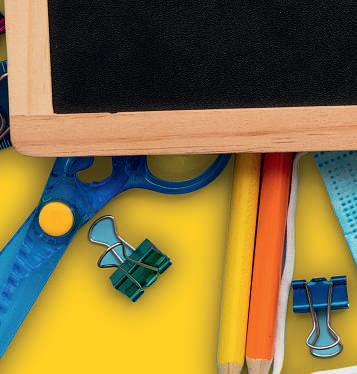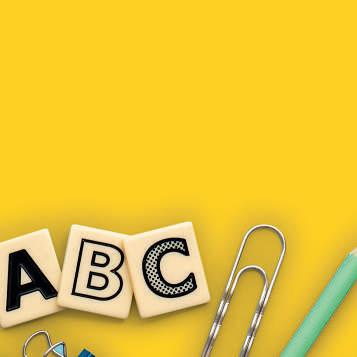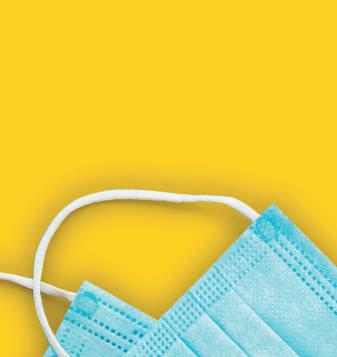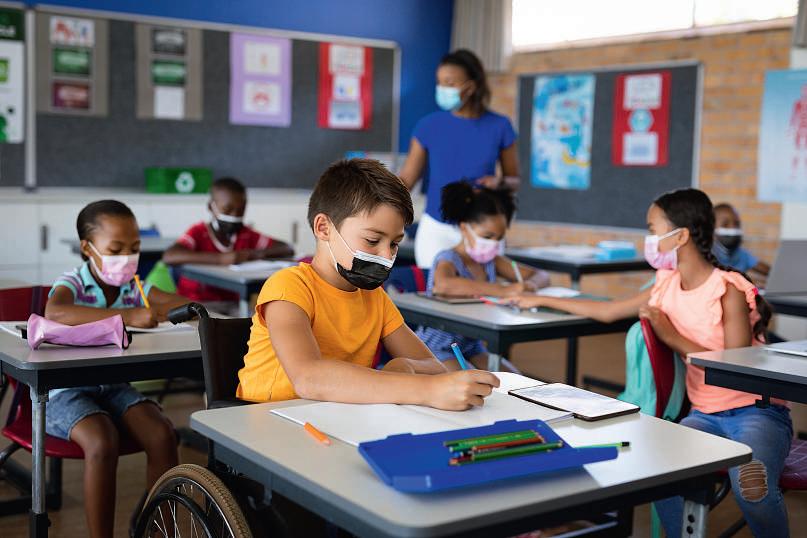
9 minute read
Regression or SEND?



Supporting pupils in challenging times





FEATURE / 27 ➜ LEADERSHIP


With the pandemic still affecting our day-to-day lives, how best can schools identify the differences between regression due to lost learning and SEND, and what is the best way to support children as we move into a second winter with Covid-19? Claire Pressdee examines the issue and looks at some of the information available to guide and inform schools, settings and staff.

T
here have been several reports documenting the difficulties that the pandemic has presented for our children and young people. The research report, ‘Covid 19 – Supporting Parents, Adolescents and Children in Epidemics (CO-SPACE)’, released in May 2021, stated “Behavioural, emotional and restless/ attentional difficulties have increased again since the latest lockdown in January 2021. This was especially the case in primary school aged children.” This is worrying, not only for the education sector and our pupils, but for society as a whole.
SUPPORT AND ADVICE
There have been many proposals as to how best to support pupils during this time. The Government has pledged £1.4 billion, including £100 million for extra tutoring hours. Meanwhile, the Scottish Government has announced £15 million to boost young people’s mental health, including targeting

28 / FEATURE ➜ LEADERSHIP


specifically low-income households, charities working with young people and children and national sports agencies.
Scotland’s provision seems to be a holistic approach to supporting children and young people. We need to ensure we don’t just provide curriculum-focused teaching but also that we understand the path our children and young people have navigated during the last 15 months of the pandemic. We also need to work out how best to address the regression of our pupils, particularly as we now know there are many who have understandably taken a sideways step and, in some cases, a backwards step with learning. This may not necessarily mean they are now in need of special educational needs support, so how then do we meet their needs?
Barry Carpenter CBE, Professor of Mental Health in Education, has constructed the Recovery Curriculum, which has been designed to enable schools to support children with the transitions and changes. The word ‘construct’ suggests this is a process of building – of co-constructing – a curriculum that is responsive to the needs of children, that harvests their experience and makes sense of it emotionally as well as cognitively (see right).
What is the reason for this? Simply put, the reason is loss, in its many guises. Loss of school, loss of social interaction, loss of friendship, loss of family, loss of freedom and structure. All the things that give us a sense of purpose and meaning. Loss or trauma may be in the background for some but in the foreground for others. Alongside this, we have the anxiety children and young people may have felt from parents regarding the loss or change of jobs or the complexities of homelife. For others,




C A R P E N T E R ’ S R E C O V E RY C U R R I C U L U M S U G G E S T S F I V E L E V E R S :
Lever 1 – Relationships: restoral of and investment in our relationships. Lever 2 – Community: listen to what has happened, understand the need of the community and engage in the transition back to school. Lever 3 – The use of a transparent curriculum: addressing gaps, consulting and coconstructing to heal the sense of loss. Lever 4 – Meta-cognition: re-learning in a school environment so we can rebuild confidence and skill. Lever 5 – Space:
to be, to re-discover, Simon Knightto make sure students
are not disadvantaged against.
To find out more, visit https://bit.ly/3nZKIO3
their experiences may have been extremely positive, and they may feel angst at the return to school.
The levers in the Recovery Curriculum can be set as a manifesto for schools to holistically support pupils. In doing so, identifying pupils who have regressed, and how best to support their needs, has become an unpicking process to determine the best way forward. As National Federation for Educational Research data suggests, nearly all teachers (98 per cent) reported that their pupils were behind where they would normally expect them to be; on average, by roughly three months. With this in mind, schools have many challenges ahead, and many priorities to juggle.




BALANCING ACT
It is important that schools are ready to look for the signs of additional needs and not automatically label students as having a SEND, to be placed on the SEN register. A useful starting point for teachers is to examine what the school and staff have done to help pupils.
We need to work in an informed and person-centred way and provide the catch-up support needed as appropriate to each child. Good relationships with parents and carers is key here.



P P R A C T I C A L P O I N T E R S F O R S U P P O R T I N G O U R P U P I L S
U Use social, emotional, mental health (SEMH) or wellbeing questionnaires, or scripted conversations with pupils, RAG (Red-AmberGreen) ratings ratings information and assign vulnerable pupils to specific staff. Use of SEMH working party to source and develop resources for staff, pupils and parents. Create opportunities to re-develop bonds and relationships. Focus on metacognition rather than filling academic gaps. Create a session with staff and the SENCo to best support staff and pupils. Create a whole school approach to ensure staff know what to do prior to involving the SENCo. Create a parent hub run by parent support advisors. Focus on what has remained the same during lockdown for pupils, e.g., improved family relationships. Offer emotional support to staff where needed. Ensure collaboration between all involved – pupils, parents and teachers.
Above all, building a nurturing, supportive, constructive environment for our pupils should be our main priority, particularly for those who have found it difficult to navigate the pandemic. Although the majority of pupils are now back at school, we do not yet know what disruptions they may face in future. Ultimately, we need to ensure students are in a good place for learning, because even in these uncertain times, we can all be sure that there will still be challenges ahead.
BIO
C L A I R E P R E S S D E E
Claire is an experienced SEND trainer and consultant with over 20 years of experience. She has worked in a variety of school settings and with local authorities to provide support, advice and training. In addition, Claire is a member of the panel for several LAs for EHC assessments.












SLCN: A WHOLE SCHOOL APPROACH FRIDAY
11 M A R C 2 0 2 2 H ONLINE SLCN CONFERENCE

Following the success of last year’s online conference, The Link Live 2021, we are pleased to announce the details for our next event.
What is a ‘Whole School Approach’?
8 SPEAKERS 7 SESSIONS 1 KEY MESSAGE
HEADLINE SPEAKER: MICHAEL ROSEN Broadcaster, children’s author and poet
DR JUDY CLEGG JORDAN SCOTT DR SARAH SPENCER Academic and speech and language therapist
BAASIT SIDDIQUI Director of Siddiqui Education and of Gogglebox fame
DR SAMANTHA WELDBLUNDELL Educational and child psychologist
SANDRA BOWEN Team Leader West - East Sussex The ongoing impact of the COVID-19 pandemic and an increased Ofsted focus on SLCN, mean that the challenges schools face are exceptional: Fortunately, there is a growing awareness of the long-term impact of SLCN. We are passionate about supporting all school staff – wherever you may be - to identify and support SLCN successfully, so that no child is left behind at school or in life. world of literature, speech and language therapy, child psychology and entertainment, the same: ‘A Whole School Approach’ is vital to increase the life chances of our children and young adults with SLCN.
#LinkLive22
How can Speech and Language Link help?
A Whole School Approach children and young people who have speech, language and communication needs (SLCN). The standardised hidden SLCN, and tailored interventions enable school staff to deliver meaningful interventions with measured outcomes. Our aim is to raise awareness of SLCN and inspire schools to develop a communication friendly setting that teaching strategies and resources for parents to use at home.
DR SAM WELD-BLUNDELL MICHAEL ROSEN
JORDAN SCOTT BAASIT SIDDIQUI
How can I get my ticket? your Home Page for more information. for more information and to purchase. recordings after the event.







